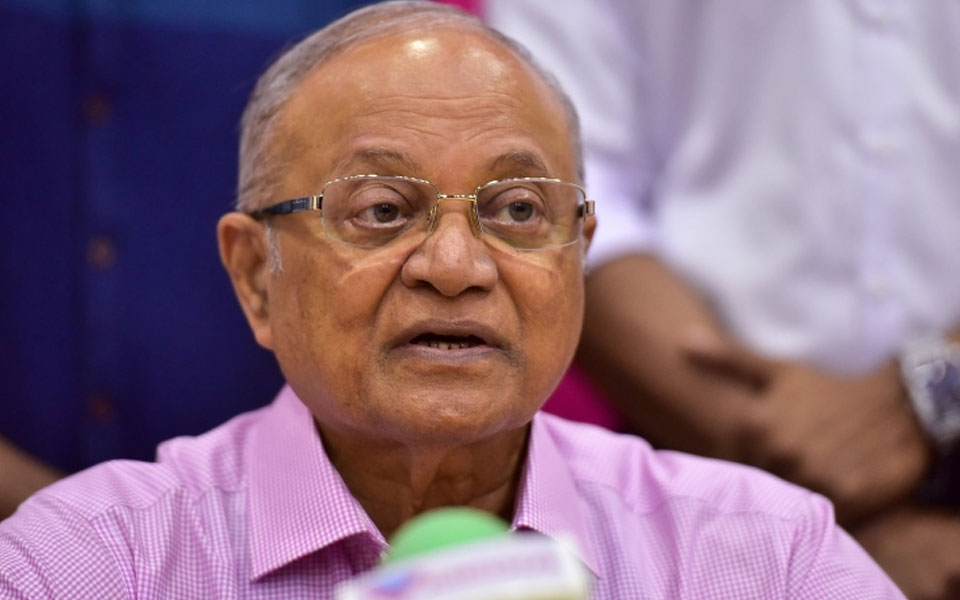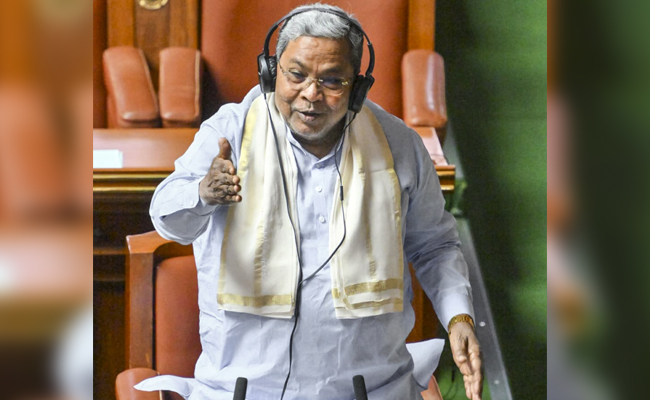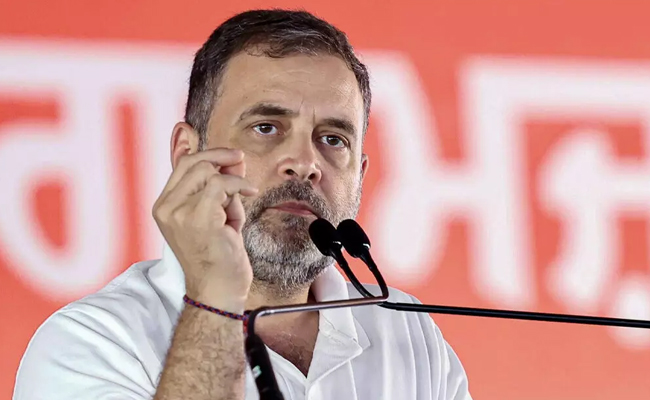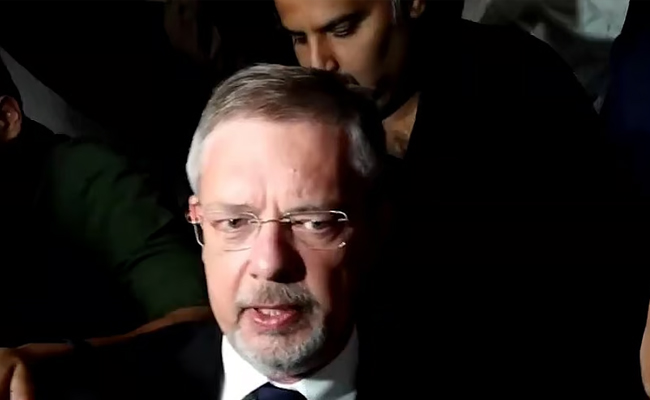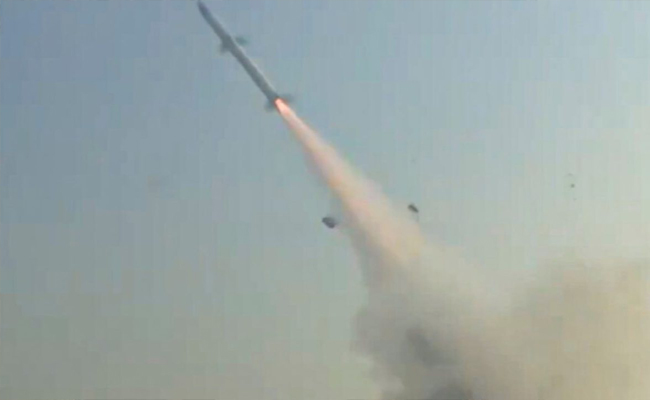New Delhi, June 14 : India on Thursday expressed over the political situation in the Maldives where former President Maumoon Abdul Gayoom and Supreme Court Chief Justice Abdulla Saeed have been sentenced to long terms in prison.
A statement issued by the External Affairs Ministry said that since the beginning of the political crisis in the the Maldives in February when emergency was imposed, India has repeatedly urged the government of the Indian Ocean archipelago nation "to allow all institutions, including the Supreme Court and the Parliament, to function in a free and independent manner, and to permit genuine political dialogue between all political parties"
"This has also been the demand of the international community at large," the statement said
"It is, therefore, with deep dismay that we learned that the former President of the Maldives as well as the Chief Justice of the Supreme Court are being sentenced to long prison terms without fair trial," it stated.
"This casts doubt on the commitment of the government of the Maldives to uphold the rule of law and will also call into question the credibility of the entire process of presidential elections in September this year."
The statement also said India believes that a democratic, stable and prosperous Maldives is in the interests of all its neighbours and friends in the Indian Ocean.
"It reiterates its advice to the government of the Maldives to restore the credibility of the electoral and political process by immediately releasing political prisoners including former President Gayoom and Chief Justice Abdulla Saeed and creating the necessary conditions for the participation of all political forces in the presidential elections."
On Wednesday, a court in the Maldives court sentenced Gayoom, accused of plotting to overthrow the government, to 19 months in prison for failing to cooperate with the police investigation.
Gayoom, 80, who ruled the country from 1978 to 2008, is the second former president to be jailed under President Yameen Abdul Gayoom's rule. He was arrested in February on charges of attempting to overthrow the government of Yameen, his half-brother.
A court sentenced him to one year, seven months and six days in prison for failing to hand over his mobile phone to investigators. The country's chief justice, Abdulla Saeed, who was arrested with Gayoom, was also given the same sentence for the same offence on Wednesday.
Saeed was previously given a similar jail sentence for allegedly influencing lower court decisions.
Mohamed Nasheed, who was the country's first freely elected president in 2008, was earlier given a 13-year sentence in a trial widely criticised for due process violations. However, he has been living in exile in Britain.
Yameen's former vice president, Ahmed Adeeb, another Supreme Court justice, two former defence ministers, a prosecutor general and opposition lawmakers are among those who have been jailed during Yameen's tenure following trials that have come under fire for alleged lack of fairness.
A five-member Supreme Court bench in February ordered the release and retrial of Nasheed and other prisoners, calling their sentences politically motivated. However, Yameen declared a state of emergency on February 5 and had Saeed, another justice, Ali Hameed, and Gayoom arrested.
The emergency was lifted in March. Later the three remaining Supreme Court judges overturned their previous decision to release the political prisoners.
Let the Truth be known. If you read VB and like VB, please be a VB Supporter and Help us deliver the Truth to one and all.
Bengaluru (PTI): The Budget Session of the Karnataka Legislature will begin here on Friday, with Chief Minister Siddaramaiah presenting the Budget for 2026-27, his record 17th as the state's finance minister.
This is another feat for Siddaramaiah, who recently surpassed D Devaraj Urs's record to become the longest-serving Chief Minister of Karnataka.
However, this has come amid speculation over a possible change of Chief Minister after the Budget session, citing a "power-sharing" arrangement between him and his deputy D K Shivakumar, at the time of the government formation in 2023.
According to official sources, Siddaramaiah as the finance minister, faces a "tightrope walk" as he must negotiate between containing the revenue deficit and funding his government's populist guarantee schemes ('Shakti', 'Gruha Lakshmi', 'Gruha Jyoti', 'Yuva Nidhi' and 'Anna Bhagya').
Faced with a revenue shortfall amid rising expenditure commitments, he has a task cut out to maneuver the state's finances while maintaining fiscal discipline.
As the CM is expected to look for resource mobilisation measures, speculations are rife that there may be an increase in taxes.
There are calls to trim the outlay on the 'guarantee' schemes, with annual spending for the five schemes exceeding Rs 50,000 crore. In 2025-26, the government allocated Rs 51,034 crore for the guarantee schemes.
Also to be factored in is an increase in the government's expenses like salaries, as it has decided to recruit for 56,432 vacant jobs.
The government expects a revenue shortfall of Rs 18,000 crore in the current fiscal (2025-26) due to factors like GST rate rationalisation among others, official sources said.
The total expenditure for 2025-26 was estimated to be Rs 4.09 lakh crore. However this may be lowered to about Rs 3.9 lakh crore, they said.
As per the 2025-26 Budget Estimates, the state's total liabilities by the end of March 2026 are projected at Rs 7,64,655 crore, which constitutes 24.91 per cent of the Gross State Domestic Product (GSDP), the government has said.
Meanwhile, Leader of Opposition in the Karnataka Assembly R Ashoka on Thursday took a dig at CM Siddaramaiah ahead of the state Budget presentation, claiming that the government is expected to borrow Rs 1.15 lakh crore and is likely to impose fresh taxes on the people.
He said the Budget would have nothing new, adding that its highlights would be criticism of Prime Minister Narendra Modi and repeated mentions of the five guarantee schemes.
The opposition is also expected to corner the government during the session on a host of issues, including the implementation of internal reservation among SCs during the recruitment process it decided to undertake -- the issue on which there is a rift between SC (Right) and SC (Left) factions within the ruling Congress.
Alleged diversion of Scheduled Caste Sub-Plan (SCSP) and Tribal Sub-Plan (TSP) funds to fund guarantee schemes, irregularities in the Karnataka Public Service Commission (KPSC) Mains examination and selection process, developmental issues, irrigation projects, and law and order are among the other issues on which the opposition is likely to target the government.
Several Bills, including an amendment to the Karnataka Prevention of Slaughter and Preservation of Cattle Act, 2020, aimed at allowing vehicles used for illegal transport of cattle to be released on an indemnity bond, and the Karnataka Crowd Control (Managing Crowd at Events and Place of Gathering) Bill, 2025, which was referred to a select committee, are likely to be tabled during the session.

